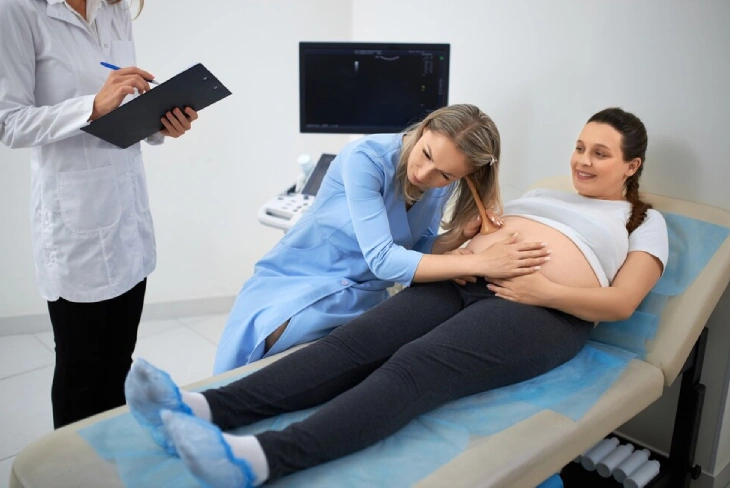Pregnancy is a beautiful journey, but it comes with its fair share of challenges—especially for your skin. Hormonal changes can turn your once predictable skin into a rollercoaster of dryness, acne, and sensitivity. That’s where pregnancy skincare steps in. This article will guide you through everything you need to know about caring for your skin during pregnancy, from avoiding harmful ingredients to building a safe and effective routine. Let’s dive in!
Why Is Skincare Different During Pregnancy?
When you’re pregnant, your body goes through a whirlwind of hormonal changes. Estrogen and progesterone levels skyrocket, which can lead to a variety of skin issues. Suddenly, you might find yourself dealing with dryness, acne breakouts, or even dark patches known as melasma.
But it’s not just about looks. Your skin becomes more sensitive during pregnancy Skincare, making it prone to irritation. What worked for you before might now cause redness or breakouts. That’s why adapting your skincare routine is crucial—it’s not just about looking good but feeling good too.
What Ingredients Should You Avoid in Pregnancy Skincare?
Not all skincare ingredients are safe for pregnancy. Some can even pose risks to your baby. Here’s a quick rundown of what to avoid:
| Ingredient | Reason to Avoid |
|---|---|
| Retinoids | Linked to birth defects |
| Salicylic Acid (high concentrations) | Potential risk to fetal development |
| Hydroquinone | Possible toxicity concerns |
Retinoids, often found in anti-aging creams, are a big no-no. They’ve been linked to birth defects when used in high doses. Similarly, high concentrations of salicylic acid (common in acne treatments) can be harmful. And while hydroquinone is great for lightening dark spots, its safety during pregnancy hasn’t been proven.
When in doubt, always check the label or consult your doctor. It’s better to be safe than sorry!
How to Build a Safe Pregnancy Skincare Routine

Creating a pregnancy-safe skincare routine doesn’t have to be complicated. The key is to keep it simple, gentle, and effective. Here’s a step-by-step guide:
- Cleansing: Start with a mild, fragrance-free cleanser. Look for ingredients like glycerin or ceramides, which help maintain your skin’s natural barrier.
- Moisturizing: Hydration is your best friend during pregnancy. Opt for products with hyaluronic acid, shea butter, or squalane to lock in moisture.
- Sun Protection: Use a mineral-based sunscreen with zinc oxide or titanium dioxide. These ingredients sit on top of your skin, providing a physical barrier against UV rays without being absorbed into your bloodstream.
And remember, less is more. Overloading your skin with products can lead to irritation, so stick to the basics.
Can You Treat Pregnancy Acne Safely?
Dealing with acne during pregnancy can be frustrating, but there are safe ways to manage it. Instead of reaching for harsh treatments, try gentler alternatives like glycolic acid or azelaic acid. These ingredients exfoliate your skin without causing harm to your baby.
Avoid strong exfoliants or treatments that strip your skin of its natural oils. And if you’re unsure about a product, ask your dermatologist. They can recommend pregnancy-safe options tailored to your skin type.
What Are the Best Natural Remedies for Pregnancy Skincare?
If you prefer a more natural approach, there are plenty of options to explore. Aloe vera is a fantastic moisturizer and soothes irritated skin. Coconut oil can help with dryness, while oatmeal masks are great for calming inflammation.
However, be cautious with essential oils. Some, like lavender or tea tree oil, can be irritating or even harmful during pregnancy. Always dilute them properly and consult your healthcare provider before use.
How to Prevent or Manage Stretch Marks
Stretch marks are a common concern during pregnancy, and while they’re largely genetic, there are ways to minimize their appearance. Keeping your skin hydrated is key. Products with cocoa butter, vitamin E oil, or Centella Asiatica can help improve elasticity and reduce the likelihood of stretch marks.
But remember, no product can completely prevent them. Embrace them as a natural part of your pregnancy journey—they’re a testament to the incredible changes your body is going through.
Are Professional Treatments Safe During Pregnancy?

Thinking about a facial or laser treatment? Hold that thought. Many professional skincare treatments aren’t recommended during pregnancy. For example, chemical peels and laser therapies can be too harsh for your sensitive skin.
If you’re considering a treatment, always consult your dermatologist or healthcare provider first. They can help you determine what’s safe and what’s best avoided.
FAQs
1. What skincare ingredients should I avoid during pregnancy?
Avoid retinoids, high concentrations of salicylic acid, and hydroquinone. These ingredients can potentially harm your baby or cause skin irritation. Always check product labels and consult your healthcare provider if you’re unsure.
2. Can I use acne treatments while pregnant?
Yes, but only certain ones. Glycolic acid and azelaic acid are safe options for treating pregnancy acne. Avoid strong exfoliants or treatments containing retinoids or high-dose salicylic acid.
3. Are natural remedies safe for pregnancy skincare?
Many natural remedies, like aloe vera, coconut oil, and oatmeal masks, are safe and effective. However, be cautious with essential oils, as some can be irritating or harmful during pregnancy. Always consult your doctor before using them.
4. How can I prevent stretch marks during pregnancy?
While genetics play a role, keeping your skin hydrated can help. Use products with cocoa butter, vitamin E oil, or Centella Asiatica to improve skin elasticity. Remember, stretch marks are natural and a sign of your body’s incredible changes.
5. Are professional skincare treatments safe during pregnancy?
Most professional treatments, like chemical peels and laser therapy, are not recommended during pregnancy. If you’re considering a treatment, consult your dermatologist or healthcare provider for personalized advice.
Conclusion
Taking care of your skin during pregnancy doesn’t have to be overwhelming. By avoiding harmful ingredients, sticking to a gentle routine, and embracing natural remedies, you can keep your skin healthy and glowing. Remember, every pregnancy is unique, so don’t hesitate to consult your healthcare provider for personalized advice.
Your skin is just one part of the incredible journey you’re on. So, take a deep breath, pamper yourself, and enjoy this special time. For more tips and guides, visit businessindexers.com.


